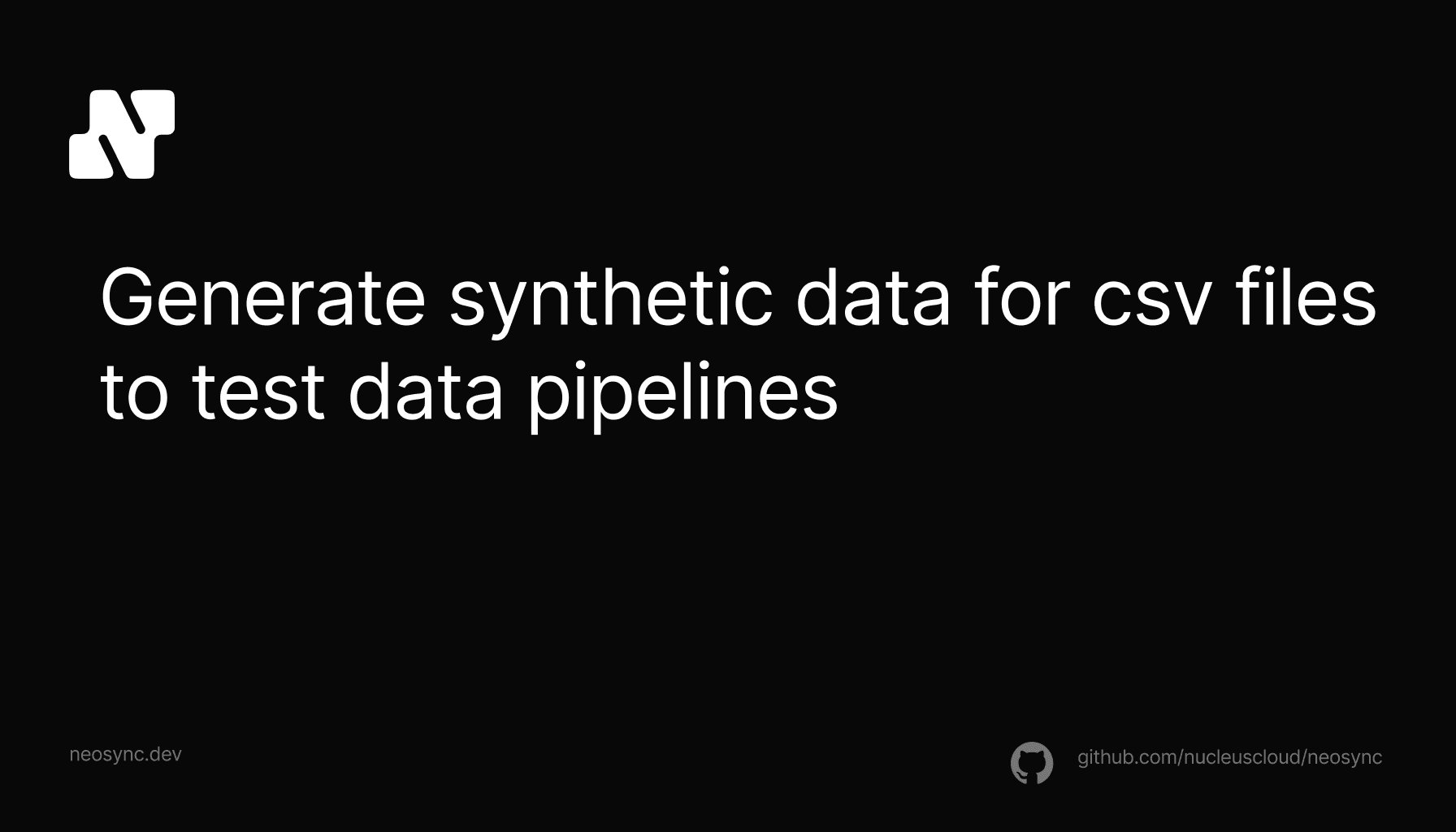
Top 4 Alternatives to Tonic AI for Data Anonymization and Synthetic Data Generation
Top 4 Alternatives to Tonic AI for Data Anonymization and Synthetic Data Generation
March 25th, 2025

As data privacy regulations continue to tighten and developers need better testing environments, finding the right tools to anonymize sensitive data or generate synthetic datasets has become essential. While Tonic AI offers robust capabilities, its commercial nature might not fit every team's budget or workflow preferences.
In this blog, I'll explore the top open source alternatives to Tonic AI that can help you manage sensitive data while giving your development team the flexibility they need.
Neosync is a rapidly growing open source data anonymization and synthetic data orchestration platform that's gaining significant adoption among engineering teams.
Pros:
Cons:
Technically, Neosync is built on a modern stack using Go for the backend with a React/TypeScript frontend. It leverages Temporal for reliable workflow orchestration, which provides automatic retries and error handling. The architecture allows Neosync to handle complex database schemas while maintaining referential integrity across tables.
PostgreSQL Anonymizer (PGAnonymizer) is a PostgreSQL extension specifically designed for anonymizing data within Postgres databases.
Pros:
Cons:
From a technical perspective, PGAnonymizer provides capabilities directly within the PostgreSQL database through native extension mechanisms. This tight integration offers performance benefits but limits its usefulness in multi-database environments.
While Gretel AI offers commercial products, they maintain Gretel Synthetics as an open source library for synthetic data generation.
Pros:
Cons:
Technically, Gretel Synthetics leverages deep learning models, particularly transformer-based architectures, to generate synthetic data that maintains the statistical properties of the original data. It's Python-based and integrates well with data science ecosystems but requires more technical expertise to implement effectively.
ARX is a comprehensive open source data anonymization tool that implements a wide range of privacy models.
Pros:
Cons:
ARX is built in Java and offers a different approach compared to the other tools, focusing more on the theoretical aspects of anonymization with strong risk analysis capabilities. It's particularly useful for organizations that need to comply with specific privacy models and want to understand the privacy/utility trade-offs in their anonymized data.
Here's how these open source tools compare across key features:
| Feature | Neosync | PGAnonymizer | Gretel Synthetics | ARX |
|---|---|---|---|---|
| Language/Platform | Go, React | PostgreSQL | Python | Java |
| Database Support | Multiple DBs | PostgreSQL only | Database agnostic | File-based |
| Referential Integrity | Strong | Limited | N/A | N/A |
| Synthetic Data | Yes | No | Strong | Limited |
| Data Masking | Strong | Strong | Limited | Strong |
| Developer Experience | Excellent | Good for Postgres | Moderate | Basic |
| Orchestration | Yes (Temporal) | No | No | No |
| Privacy Analysis | Basic | Basic | Moderate | Extensive |
| Community Activity | High | Moderate | Moderate | Low |
In my experience, most development teams benefit from a tool that integrates well with their existing workflows and databases. Neosync stands out for its developer-friendly approach and focus on database integration, while the other tools excel in their specific niches.
One significant advantage of these open source solutions is the ability to customize them to your specific needs. You can contribute back to the projects, ensuring they continue to evolve to address real-world requirements in data anonymization and synthetic data generation.
Before making a final decision, I recommend setting up a proof of concept with a sample of your actual data to ensure the tool meets your specific requirements for both data utility and privacy protection.

Top 4 Alternatives to Tonic AI for Data Anonymization and Synthetic Data Generation
March 25th, 2025

Using Neosync to generate csv files with synthetic data for testing your data pipelines is easy. Here's how.
March 3rd, 2025

Nucleus Cloud Corp. 2025